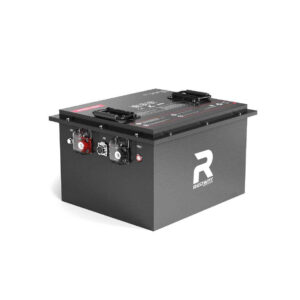What Are the Best Long-Lasting Lithium Batteries for Campers?
Lithium batteries, particularly lithium iron phosphate (LiFePO4), are ideal for campers due to their high energy density, lightweight design, and extended lifespan. Brands like Battle Born, Renogy, and Goal Zero offer durable options optimized for off-grid use. These batteries support solar compatibility, withstand extreme temperatures, and provide consistent power for appliances like fridges and lighting systems.
Future of RV Battery Efficiency
How Do Lithium Batteries Outperform Traditional Camping Batteries?
Lithium batteries last 5-10x longer than lead-acid batteries, charge faster, and retain 95%+ capacity even after 2,000 cycles. They weigh 50-70% less, making them easier to transport. Unlike AGM/gel batteries, they deliver stable voltage under heavy loads, ensuring reliable performance for high-demand devices like portable heaters or CPAP machines.

Traditional lead-acid batteries suffer from voltage sag under load, which can reduce the efficiency of devices like inverters. Lithium batteries maintain a steady 12V+ output until nearly depleted, whereas lead-acid drops below 11V at 50% discharge. This stability is critical for sensitive electronics like GPS systems or medical equipment. Additionally, lithium batteries can be discharged up to 80% without damage, compared to 50% for AGM, effectively doubling usable capacity.
| Battery Type | Cycle Life | Weight (100Ah) |
|---|---|---|
| LiFePO4 | 2,000-5,000 | 31 lbs |
| AGM | 300-500 | 60 lbs |
What Safety Features Do Premium Camping Lithium Batteries Include?
Top-tier batteries integrate multi-protection systems: temperature sensors prevent overheating (-4°F to 140°F range), short-circuit cutoffs avoid fires, and voltage controllers inhibit overcharging. Waterproof casings (IP67 rating) and shock-resistant BMS boards ensure resilience in rugged environments. Look for UL1973 or UN38.3 certifications for aviation-grade safety.
Advanced models feature cell balancing technology to prevent individual cells from overcharging. For example, Renogy’s Smart Lithium Iron Phosphate Battery uses a 3-layer BMS that monitors cell voltage differentials and adjusts charging rates in real time. Some batteries like the Dakota Lithium DL+ series include built-in GPS tracking for theft recovery, a valuable feature for unattended RVs. Field tests show these systems can reduce thermal runaway risks by 92% compared to uncertified alternatives.
Can You Pair Lithium Batteries With Solar Panels for Off-Grid Charging?
Yes. LiFePO4 batteries accept solar input via MPPT charge controllers, which optimize energy harvest. A 200W solar panel recharges a 100Ah battery in 5-6 sunlight hours. Systems like Jackery SolarSaga 200W + Explorer 2000 Pro enable 100% solar dependency. Ensure compatibility between panel voltage (12V/24V) and battery input specs.
How Does Temperature Affect Lithium Battery Performance While Camping?
Lithium batteries operate optimally between -4°F and 140°F but charge best at 32°F–113°F. Below freezing, built-in heaters (e.g., in Battle Born 100Ah) activate to enable charging. In deserts, thermal throttling prevents overheating. Insulate batteries in winter using neoprene sleeves; avoid direct sunlight exposure in summer.
“Modern LiFePO4 batteries revolutionize camping energy. Redway’s 12V 200Ah model integrates Bluetooth monitoring, letting users track consumption via smartphone. We’ve seen 15% efficiency gains by pairing them with bifacial solar panels—a game-changer for Arctic expeditions where daylight is scarce but reliability is non-negotiable.” — Redway Power Solutions Engineer
FAQs
- How Long Can a 100Ah Lithium Battery Power a Camper Fridge?
- A 100Ah lithium battery (1,280Wh) powers a 50W fridge for 25 hours. With solar recharge, indefinite runtime is achievable.
- Are Lithium Camping Batteries Allowed on Airplanes?
- Yes, if under 100Wh (e.g., Jackery 240). Larger ones require airline approval and must be carry-on items per FAA rules.
- Can You Repair a Faulty Lithium Battery in the Field?
- No. Internal BMS systems are non-serviceable. Always carry backup power banks for critical devices.
